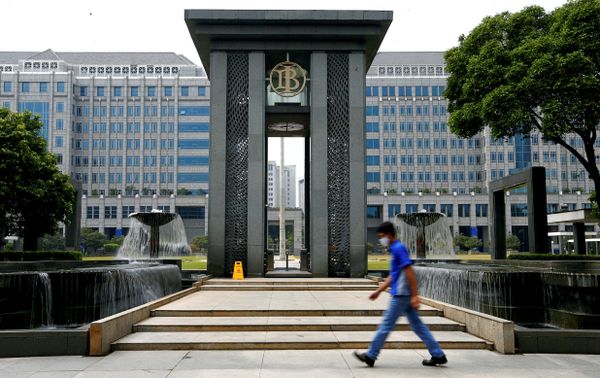JAKARTA, Aug 20 — Indonesia's central bank cut interest rates again in a surprise move today and flagged it could cut some more, as it stepped up support for Southeast Asia's largest economy against the backdrop of global uncertainties.
Bank Indonesia (BI) trimmed the benchmark seven-day reverse repurchase rate by 25 basis points to 5.00 per cent, its fifth rate cut since September, taking it to its lowest level since late 2022.
Only five of 29 economists polled by Reuters had expected a cut. The rest expected the rates to be kept steady.
BI Governor Perry Warjiyo said the decision was in line with expectations of low inflation and a stable rupiah, as well as the need to bolster economic activity.
GDP growth is expected to accelerate to around 5.1 per cent or higher in 2025, above the midpoint of BI's official outlook range of 4.6 per cent to 5.4 per cent and compared with 5.03 per cent in 2024.
"The capacity of the economy is still larger than the demand. That is why we have lowered interest rates...and we will continue to assess room for further rate cuts," he said during a press conference.
Warjiyo was upbeat about growth prospects in the second half, citing the impact of BI's monetary easing and the acceleration of government spending.
Today's rate cut was BI's fifth since September last year, with a total reduction of 125 basis points. It was the first time during the easing cycle that it had made cuts at consecutive meetings.
The decision followed data earlier this month showing that economic growth accelerated to 5.12 per cent in the second quarter, the fastest annual pace in two years, driven by robust investment and household spending.
Some economists questioned the strength of that data, pointing to indicators showing weakening domestic demand, while others have taken note of looming headwinds to growth caused by United States (US) tariffs.
"First-half growth may have come in stronger than expected, but the second half holds challenges given higher US tariffs and still-fragile consumer confidence," said Maybank economist Brian Lee.
Indonesia's exports to the US have been subject to a 19 per cent tariff since August 7, the same level as Thailand, Malaysia, the Philippines, and Cambodia.
In a sign of demand remaining soft in the current quarter, July loan growth slowed to 7.03 per cent, the lowest since March 2022. BI attributed this to banks' preference for parking excess liquidity in securities over lending, which they did at a slower rate.
"Bank Indonesia is clearly keen to support economic growth and, so long as inflation remains contained and the rupiah holds up well, there is probably scope for a bit more monetary easing over the coming months," said Capital Economics' analyst Jason Tuvey in a note.
He also predicted further cuts, taking the benchmark to 4.50 per cent by year-end.
Maybank's Lee forecast cuts of 50 bps more this year and another 50 bps next year to bolster growth, noting the government's 5.4 per cent growth target for 2026, which President Prabowo Subianto unveiled last week.
He proposed to Parliament a US$234 billion (RM988.9 billion) budget for 2026, a 7.3 per cent increase from this year's budget outlook, with a large increase in spending for defence and his flagship food and nutrition programmes.





